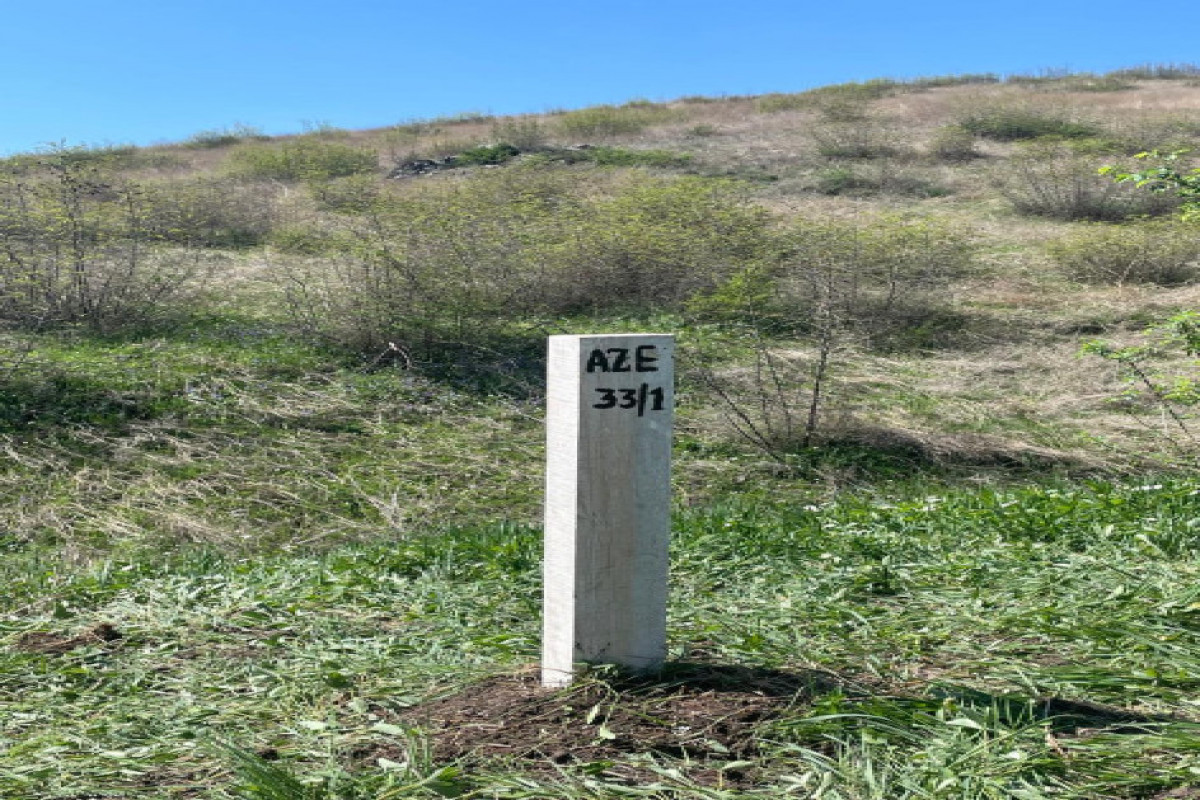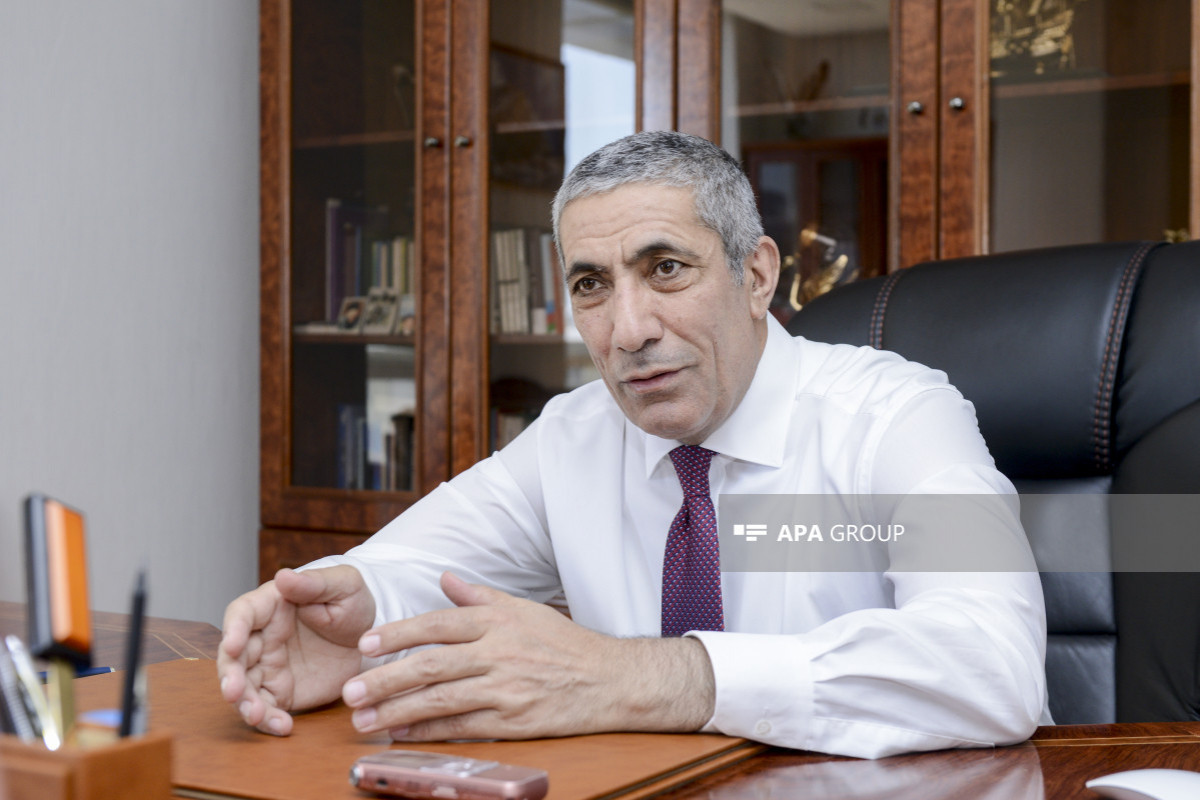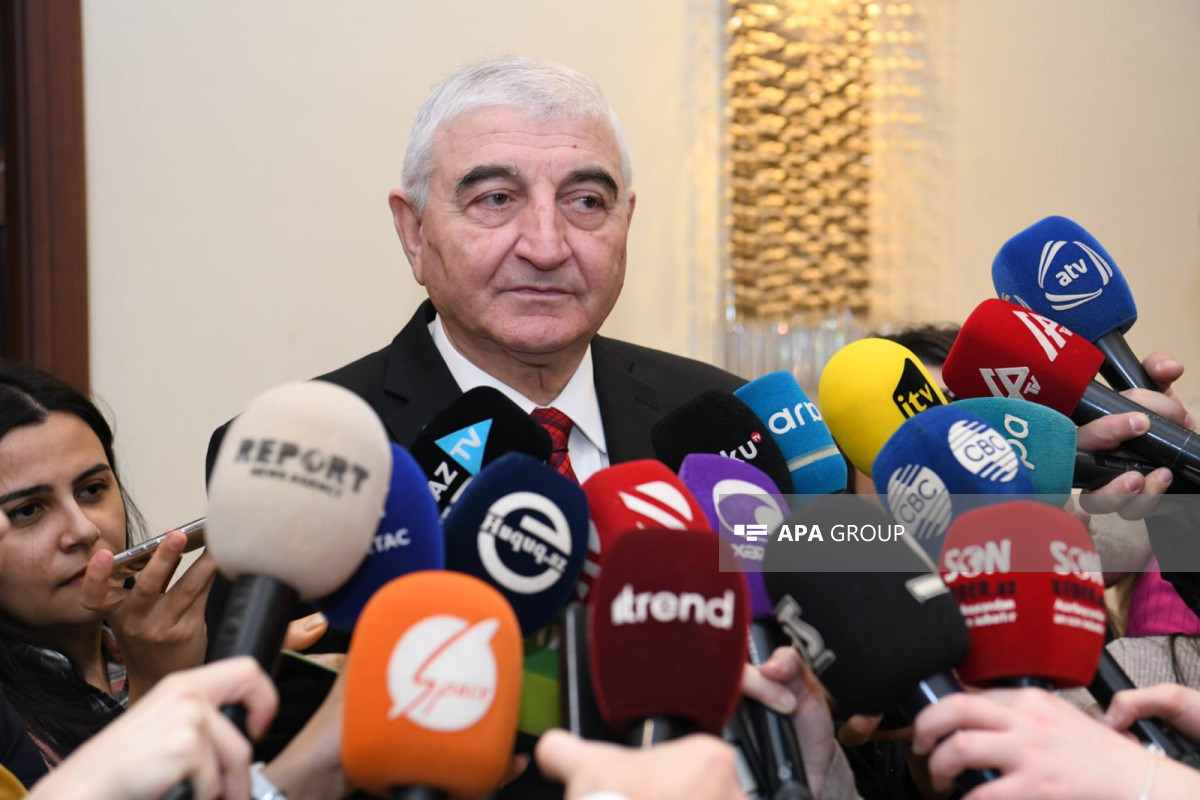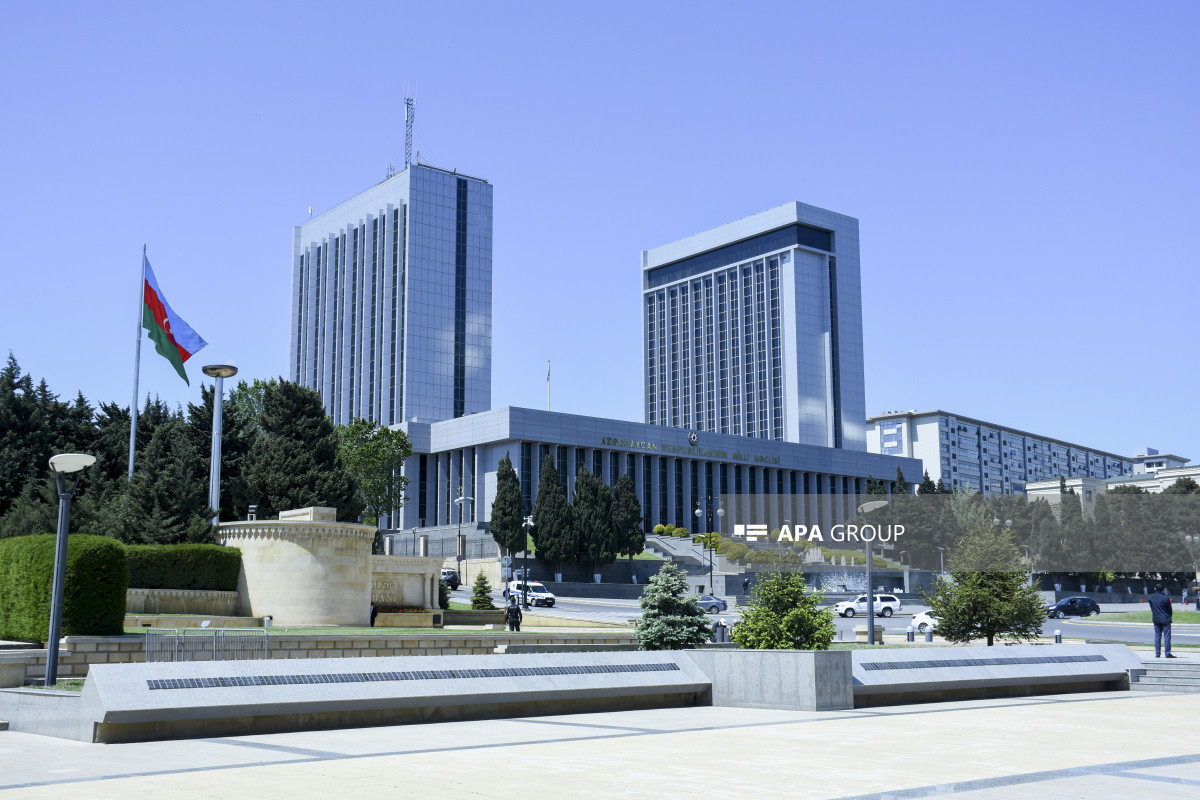Baku. Javid Zeynalli – APA. Interview with Tale Heydarov, Chairman of The European Azerbaijan Society (TEAS)
- The European Azerbaijan Society is celebrating its 10-year anniversary. What has TEAS achieved over those years and what image do you have when you look back?
- On the one hand, ten years seems a long time for The European Azerbaijan Society. On the other, we realize how quickly the years have passed. I can tell you that it has been a very interesting and fruitful time in which TEAS has implemented a huge range of projects. As you say, we are now celebrating the 10th anniversary, since TEAS began work in 2006. In fact, the process started even earlier. When I entered the London School of Economics and Political Sciences – LSE - in 2003, I encountered an interesting situation. There were already student societies representing different countries, including some of our neighbours, but there was no Azerbaijani society. There were five other Azerbaijanis at the LSE then, and we decided to remedy that. The reason was simple: when we were asked where we came from, people didn’t know where Azerbaijan is, they couldn’t even pronounce the name of our country. Of course, that pained us. Everyone wants his country to be recognized abroad. After all, we are talking about London, a major cosmopolitan city and that was hard for us to take. Our goal was to make Azerbaijan recognised and to give local people true, objective information about the Karabakh conflict – Azerbaijan’s most painful wound. So the society was founded in 2004.
At the risk of sounding immodest, I must say that it was probably the most active of all the newly-established ones. Despite being on a constant learning curve, we held a variety of events every month. There were events on Karabakh that brought together people from the British political milieu, academics, teachers and students. In this respect the society soon established a serious reputation. Meanwhile, we noted the lack of good materials to promote our country. Books were either riddled with mistakes, or their content was unsuitable. The students who joined us were patriotic and educated youth, thus we decided to prepare a publication about Azerbaijan in 2006 – my last academic year. This was the magazine, Visions of Azerbaijan. After I graduated, I could no longer continue involvement with the society, as it was based in the LSE. We decided to establish the London Azerbaijan Society. After some time our work extended beyond London, we found our way to other UK cities and our publications began to appear in other European countries. This was why we decided to rename the organization - The European Azerbaijan Society (TEAS).
I should note that we have always had the support of Azerbaijani President HE Ilham Aliyev over these years. In fact the president awarded me the Taraqqi (Progress) medal, which represents an assessment of the society’s activities. I would like take this opportunity to express my gratitude to President Aliyev for the support he has shown for TEAS’s work.
- What problems have you encountered in the campaign about the Karabakh problem?
- I would like to note one statistic. While setting up TEAS, we conducted a survey in the UK Parliament to find out how many parliamentarians were aware of the Armenia-Azerbaijan conflict over Nagorno-Karabakh. The figure, if I’m not mistaken, was below 50 percent. Imagine that if members of a purely political organisation were inadequately informed about the problem, then awareness within society at large must have been even lower. That was the first problem, that is, the small number of people who were aware of the Karabakh problem. Further, people had a mistaken belief that an ‘Armenian genocide’ had been committed in the region, that Armenians had been subjected to aggression at the hands of Turks and Azerbaijanis. So when we said that Armenians had pursued an aggressive policy against Azerbaijan, like it or not, people were confused. Foreign students themselves admitted that they had been informed that Azerbaijanis had conducted aggression against Armenians.
- The propaganda machine was working against us...
A. Right. We tried to counter the age-old propaganda of the Armenian lobby. It was very difficult. The Armenian lobby has been at work for decades. Sometimes Armenians attended our events and tried to disrupt them.
Two years ago, we conducted another survey in the UK Parliament, and that revealed that over 85 percent of parliamentarians were already aware of the Nagorno-Karabakh problem. TEAS’s close work with the Azerbaijan All-Party Parliamentary Group (APPG) of the UK Parliament and the latter’s reorganization, and the arranging of regular visits by parliamentary delegations to Azerbaijan played an important role in this improvement. This work led to the British organizations accepting TEAS as a serious partner, and cooperating with us.
- What kind of projects have you implemented to ensure that Nagorno-Karabakh and other issues are covered in the international media?
A. There have been many very effective projects. Over these ten years we have supported visits by numerous influential European media people to Azerbaijan. Journalists have visited the front line and met refugees and internally displaced persons. The society invited the US photojournalist Ed Kashi, known for his work in conflict zones, to Azerbaijan. He took photographs in refugee camps, and we organized exhibitions of them in various European cities. He has many followers and this was one way of drawing attention to the Karabakh problem. We also organized a visit by German photojournalist Philipp Rathmer and supported his subsequent exhibitions.
Another major project was the international presentation and screening of the documentary Endless Corridor about the Karabakh conflict, in particular the Khojaly tragedy, that was made by Lithuanian film director and producer Aleksandras Brokas. Our work was within the framework of the Justice For Khojaly international awareness campaign initiated by Leyla Aliyeva, Vice-President of the Heydar Aliyev Foundation. The film covered not only the Azerbaijani side, but also the views of Armenians speaking openly about the crimes committed by Armenian separatists in Karabakh and Khojaly. The film exposes them as being directly responsible for the Khojaly events.
This film has received festival acclaim as Best Documentary, and Aleksandras Brokas as Best Director of a Documentary. The film has also been screened on Turkey’s Kanal 24, CNN Turk, Israel’s Channel 1 TV channels, Albania’s National Television, Eurochannel and in Europe’s capital cities and political centres.
Again within the framework of the Justice for Khojaly campaign, TEAS has held events in more than 30 European countries. Our book Khojaly Witness of a war crime – Armenia in the Dock, internationally edited and published in English by ITHACA PRESS in London as part of the campaign. The book was the first in the West to document the Khojaly events. Leyla Aliyeva wrote a foreword for editions published in Russian, French and Turkish. We have also made films to promote the country’s history and culture. The documentary Azerbaijan through Foreign Eyes features political leaders, journalists who have worked in Azerbaijan and other foreign citizens sharing their impressions of Azerbaijan.
Our documentary about Yvonne Botto – the life of a French woman who met and married a young fighter from Azerbaijan during World War II and returned with him is also interesting. Young Voices, Ancient Song is another documentary to inform the international audience about Azerbaijani mugham and its homeland Nagorno-Karabakh.
French photographer Frederique Lengaigne was in Azerbaijan during the Khojaly tragedy and witnessed the crime. We exhibited her photographs in different cities and published her pictures in Khojaly Witness of a war crime – Armenia in the Dock.
By the way, I should note that TEAS regularly holds business forums and presentations in Europe to highlight Azerbaijan's investment opportunities, environment and economic reforms. The business forums have been held in London, Paris, Amsterdam and Brussels. We organised presentations of the ASAN Service, one of the most impressive social reforms implemented in Azerbaijan, in parliaments and other venues in London, Paris and Brussels. These events were widely covered by international media. We also try to ensure coverage abroad of events held in Azerbaijan. For example, we contributed greatly to awareness of the first-ever Baku 2015 European Games.
- How have you organised distribution of the Visions of Azerbaijan magazine? Are you planning to expand the magazine’s scope?
- Over these ten years, many, many articles about Azerbaijan’s position on the Armenian-Azerbaijani conflict over Nagorno-Karabakh, Azerbaijani literature, history, music, culture, ethnography, ecology and cuisine have been published in the magazine. The website created to feature these materials online is one of the leading English-language resources on Azerbaijan. The magazine’s inclusion in internationally-renowned library collections and catalogues is a measure of its reputation. It is gratifying that the magazine’s editorial office has influential authors, both local and foreign, and is expanding year by year. To date, more than 40 issues of the magazine have been released with a total circulation of some 25,000. We plan to publish the magazine in other languages, for example in Turkish. The magazine’s track is one of continuous improvement. In fact it has just been launched in Visions TV format. We are also working on a version of the magazine for children.
- How does The European Azerbaijani Society coordinate its work with diaspora organisations?
- TEAS as an organisation is making a great contribution to the promotion of Azerbaijani culture and history worldwide. Of course, we maintain close contact with our diaspora and welcome participation by diaspora organisations in our projects. TEAS continues to launch petitions in a number of European countries and encourages our diaspora organizations to join these campaigns.
As an example, a few years ago TEAS raised concern over Armenia illegally opening an airport in Khojaly, and launched a campaign in support of Azerbaijan’s just response. Thanks to the campaign, dozens of European parliamentarians made statements expressing their overt support for the territorial integrity of Azerbaijan and strongly condemning the opening of the airport. In another case, the self-styled “head” of the self-styled “Nagorno-Karabakh Republic” planned to visit the United Kingdom. TEAS, with the support of the Azerbaijani diaspora, protested the visit, addressing an open letter to Chatham House, the Royal Institute of International Affairs, that organised the visit. In response, Chatham House said that it had not expected such a response and it had never before received such a strong reaction, questioning its independence.
- Could you talk about the educational and scientific projects implemented by the organisation that you lead? What projects have been carried out to date? Is TEAS planning to launch other projects?
- Education is a priority for our society. Our first step was to establish the European Azerbaijan School (EAS). Opened four years ago, the school has already recorded success. It is a member of the Council of International Schools (CIS), the European Council of International Schools (ECIS) and International Baccalaureate Organization (IBO) – some of the most respected organisations in their field. A second building for a school with more than 600 pupils was commissioned this year. Along with the Azerbaijani language, EAS offers perfect English language training. We aim to maintain contact with alumni in the future. Further educational projects include plans to open kindergartens - as you know, there are not enough in Azerbaijan. Our goal is to open high-level kindergartens, meeting international standards.
I should also note that although our schools are private, talented children are exempted from tuition fees. In Sumgayit more than 60 teenagers are currently undergoing free preparation courses for university entry. They are children from families on low incomes, but they have special abilities.
In addition, we have established the Azerbaijani Teachers' Development Centre that trains teachers to international level using innovative methods. Together with the Cambridge International Examination Centre and Oxford University TEAS has also created The European Language Learning School (TELLS) in Baku. This school, which will provide high-level training in foreign languages, will open in April 2016.
We have also established the Centre for Azerbaijani Studies, dedicated to investigating Azerbaijan’s science and history. At the same time, we have worked in various international archives. As a result, we have brought out some important publications. For example, the three-volume The Armenian Question in the Caucasus: Russian Archive Documents and Publications. This book includes newly revealed documents and describes the deliberate settlement of Armenians on Azerbaijani lands. Entirely new facts are presented for readers to draw their own conclusions. George Bournoutian, an American historian of Armenian origin, wrote an article about the book declaring that Azerbaijan was winning the information war against Armenia. We have published more than 20 books on Karabakh in foreign languages.
- “DÉ™rs evi” courses are part of your educational projects…
That’s true. What makes these courses special is that the teachers are students who graduated from university with high scores. This work has been a success from the outset. We’re thinking of opening more branches in other cities.
- What can you say about the work of the TEAS Press Publishing House?
- We created the TEAS Press Publishing House hoping to contribute to book publication in Azerbaijan and to increase interest in reading. Established in 2014, TEAS Press has so far published books on Azerbaijan’s history, literature, culture etc., attracting huge interest from readers. Its range has expanded with the opening of its Turkey branch. The TEAS Press imprint Üç Alma, which specialises in children’s and youth literature, has published more than one hundred books.
- TEAS provides support to young people studying abroad. Some say that those students must return to the country and contribute to its development. Sometimes we hear the opposite view: they need to stay in the country where they have studied and work to promote Azerbaijan. It would be interesting to hear your opinion on this...
- It's hard to give a concrete opinion on this subject. First of all, it’s better to study abroad once such an opportunity arises. I spent my secondary school years mostly in Azerbaijan and I learned about the country’s culture, history and literature here. I’m happy about that. But after a certain stage or age, it’s stimulating to study overseas to acquire higher degrees in knowledge and study the experiences of other countries. These people can bring the innovations they have seen in those countries back to Azerbaijan. We have to learn all that is positive. The current developed and developing countries had gone through this experience. They sent their youth abroad and those students brought back both learning and models of education. That’s how progress was achieved.
Of course there are discussions as to how to develop our own model of education in Azerbaijan. In fact, the models adopted are blends of different models. As for whether to return to Azerbaijan or not, I think it would be good to stay abroad and work for a few years after graduating. Gaining work experience is an additional advantage. Nevertheless, I’m of the opinion that students who have studied and gained work experience abroad should return to Azerbaijan and apply their knowledge and skills to the country’s development. Perhaps it would be better, in terms of promoting Azerbaijan, for some to stay and work there. But I think the overwhelming majority should return to the country and contribute to it. You can’t find anyone saying, “There is no room for a well-educated person in Azerbaijan”. There are jobs everywhere for them because they are needed. Not just one, but several jobs. They sometimes face a dilemma as to which one to choose. So, there is a need in our country for the application of knowledge and experience attained abroad.
- Do you have any plans to promote Azerbaijani literature and culture within the country and beyond?
- As a matter of fact, this is one of the purposes of the TEAS Press Publishing House, which has published selected works by Azerbaijani writers in Russian and English. Works by Ziya Bunyadov and Chapay Sultanov on the history of Azerbaijan will be translated into English and those by investigative journalist Claudine Le Tourneur d’Ison into French. We need to increase people’s interest in book reading in Azerbaijan. I think of it as a public problem rather than an individual one. There are different reasons for this. But we have to accept that if we want to develop in any area that cannot be achieved by educating a group of people. People have to show a desire for education. Unfortunately, we sometimes have different approaches to this issue. There is a belief that education is only received during school and university years and not afterwards. In fact, there is a greater need for education after school and university. The idea of studying for life is widespread in the world. You can hardly find anyone holding a book in public places. It seems strange to see someone doing that. This is not good at all. This work cannot be done solely by propaganda. An extensive reading programme must be launched and should be joined by everyone. To contribute to this work, we aim to open book stores in Azerbaijan. You are soon going to see our network of book stores in Baku and other cities. The media has a huge role to play here. I have to say that Azerbaijani TV channels are doing little informative work on this issue. There is a lot of criticism but the reality is not changing. When I was young, there were more TV programmes about literature, theatre and other useful themes. The situation is different now. You can hardly find a quality programme for children. If the Azerbaijani media does not contribute to enlightenment and does not work more effectively in this area, it could be difficult for us. The launching of campaigns to raise public interest in book reading is more than necessary. This is the main path towards development—individually and collectively. There is no short alternative.






